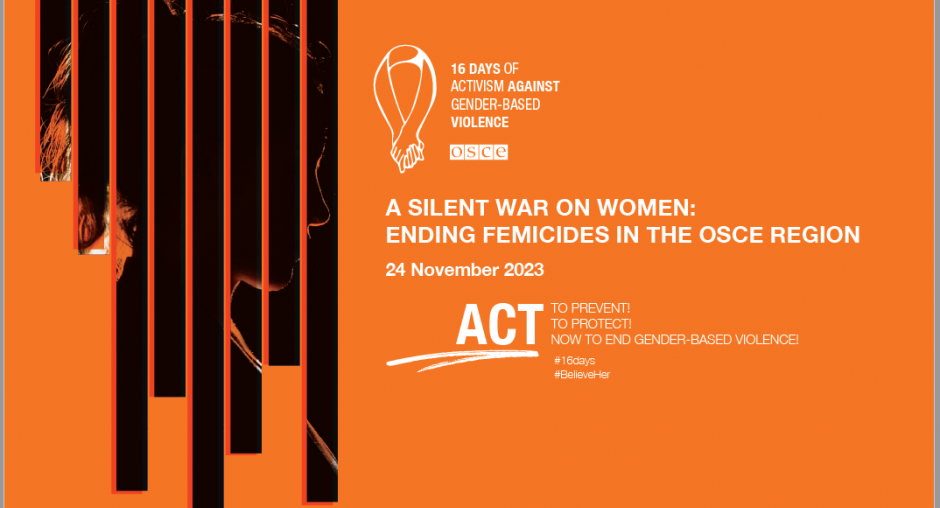Prevention and fight against femicide in focus of OSCE-organized conference

On 24 November, OSCE participating States met in Vienna at an event hosted by the Secretary General to seek an end to the scourge of femicide and to develop a roadmap to end the killing of women, merely for being women.
The meeting took place ahead of the International Day for the Elimination of Violence Against Women and opened the OSCE’s 16 days of activism against gender-based violence.
Last year alone, more than 89,000 women around the world were murdered – and most of these murders were gender-based. Moreover, according to the UNODC, more than half of these murders were committed by partners and family members.
However, the figures suggest that this is only the tip of the iceberg. Not all countries collect gender-disaggregated data on homicides, and even fewer collect data on the context that would allow gender-related killings to be identified (such as the relationship between victim and perpetrator, motive, etc). Moreover, comprehensive and coherent legal definitions of femicide and gender-based violence simply do not exist throughout the OSCE region.
“Despite all efforts, around the world, violence against women remains a serious problem. This violence is not just a violation of women’s rights. It is a violation of the most basic human rights: the right to feel safe,” said OSCE Secretary General Helga Maria Schmid.
“The numbers on femicide are shocking. But these crimes are preventable. Investing in protection and prevention is therefore essential,” she stressed.
OSCE Survey on Violence against Women revealed that embedded cultural and societal bias perpetuates attitudes and behaviours that are at the root cause of violence against women and girls. As a result, whole societies are not even discussing femicide.
It’s the lack of a serious conversation on femicide that most concerns former UN Special Rapporteur for Women, Dr Dubravka Šimonović.
“We need to accelerate ending this silent war on women and the most extreme form of violence against women by applying a roadmap against femicide,” she said.
Dr. Šimonović strongly echoes Secretary General Schmid’s ambition: “This roadmap has the following steps: First: to name it femicide. Second: to pull out femicide data from homicide data. Third: to establish a femicide Watch/observatory and to develop meaningful victim-centred prevention strategies,” she explained.
The conference also presented OSCE participating States with a forum to discuss the current state of affairs, listen to what different actors are doing, share experiences, and examine consciences. “It is my sincere wish that this instigates further engagement on this issue across OSCE participating States,” said the OSCE Secretary General.
The conference is the keynote moment in an OSCE-wide social media campaign to raise awareness, organised under the slogan: ‘Act for prevention. Act for protection. Act now to end gender-based violence.’
For more information on OSCE’s campaign during the 16 Days of Activism against Gender-based Violence, follow us on social media.
